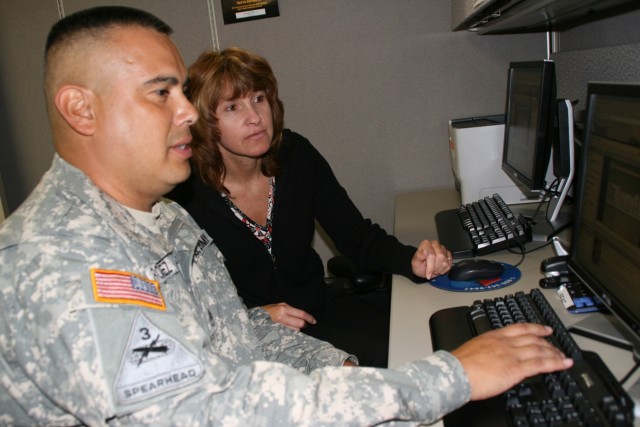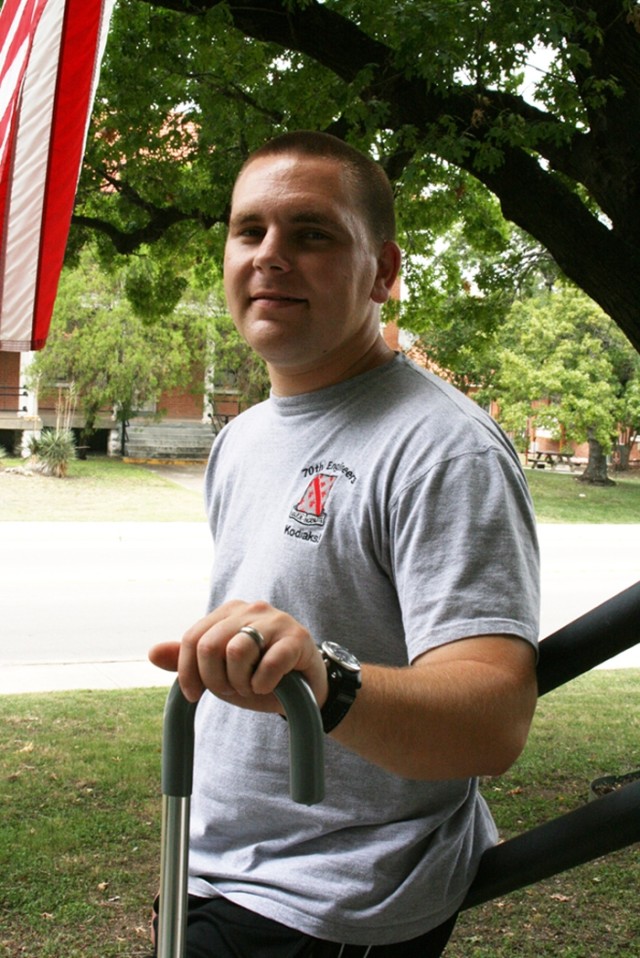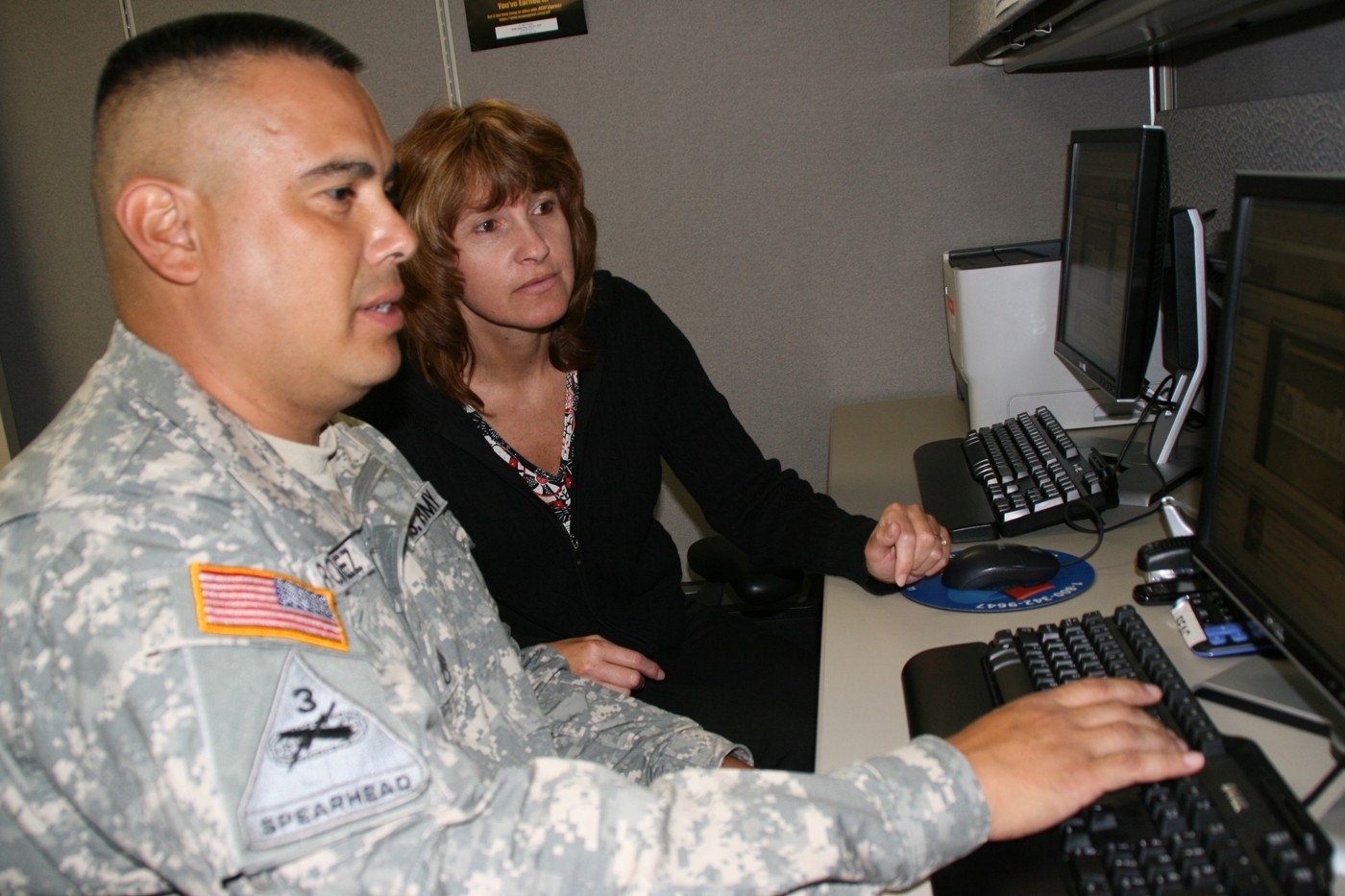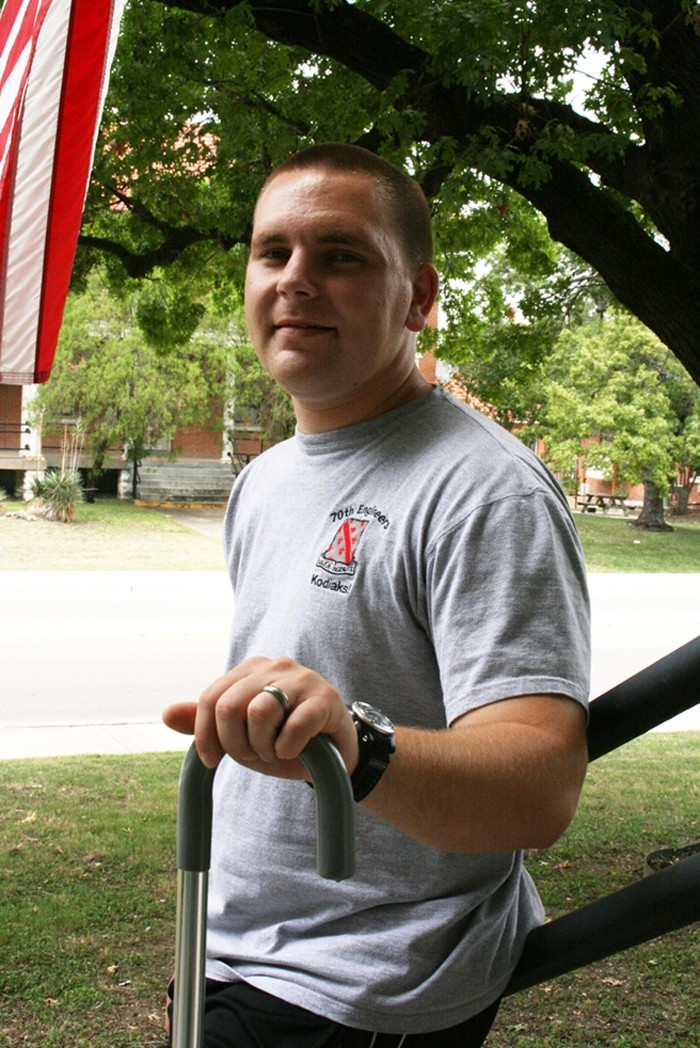FORT SAM HOSTON, Texas --- Sgt. James Ford's career imploded the moment an improvised explosive device exploded on a roadside in Afghanistan in October 2007.
Two out of the six people present were injured, including Ford. The Soldier sustained a right leg fracture, shattered heel and mild Traumatic Brain Injury.
The injuries left Ford unable to continue with the demanding physical requirements of a combat engineer, whose strenuous tasks include building roads and constructing bridges.
Ford, now an outpatient of Brooke Army Medical Center and on the mend, decided to turn to another career rather than opt out of the Army.
But, "If I'm staying in, I need to reclassify," said Ford, who is married with two children, ages 1 and 3.
Ford became one of the many Warriors in Transition who are seeking out career and educational options after life-altering injuries shifted their career path.
"I see a lot of former infantry Soldiers here. Most are interested in continuing some facet of their Army career and focus in an area of law enforcement," said Gabriele Dias, one of two Army Continuing Education System counselors dedicated to helping Warriors in Transition at the Soldier and Family Assistance Center. The SFAC, which is just up the road from BAMC, contains myriad resources for wounded warriors and their Families to include help with education, personnel issues, benefits and finance.
Ford's focus also was on law enforcement. But before he could reclassify into another career field, Ford decided to first open his options by boosting his Armed Forces Qualification Test scores. AFQT scores help determine a Soldier's eligibility to enter the Army, as well as qualify for certain careers.
Ford decided to hit the books, but not alone. He turned to Dias and the Fort Sam Houston Army Continuing Education System.
"ACES has a lot to offer Soldiers, particularly to Warriors in Transition," said Dias. "We have counselors, instructors and interactive computer programs all aimed at helping Soldiers and Family members succeed in their goals."
While each Soldier has a different goal, Dias said there are common themes. "Some are trying to stay in (the Army), while others are looking to make a transition and want to be more marketable," Dias said.
Dias said she spends a majority of her time working with Soldiers on college degree plans, serving as a liaison to universities and an advocate on behalf of the Soldiers.
"I want to make sure the college is providing the best possible service," Dias said. "I'm working to develop relationships with universities so I can offer students the easiest transitions back into the classroom."
Dias also helps Soldiers navigate GoArmyEd, which is the portal for Army Tuition Assistance, as well as more than 200 universities.
While Ford has long-term college goals, his short-term focus was on beefing up his AFQT math and verbal scores. Dias suggested he start by using the interactive computer programs at ACES.
Ford spent hours at the education center, focusing on the basics. And he didn't stop there. Combating mild TBI, which can cause short-term memory loss, Ford created flashcards with vocabulary words and mathematical formulas and practiced at home.
"He studied every night," said Ford's wife, Liz, who drove him daily to the education center. "He was very dedicated. I'm very proud of him."
The long nights proved worthwhile. Ford took the AFQT about a month ago and raised his score by 15 points.
"I couldn't believe I did it," he said. "I even got a perfect score on one of the sections."
Ford now has a broader range of opportunities, to include one of his passions, law enforcement. He's also enrolled with the University of Maryland University College pursuing his associate degree in criminal justice.
Dias said Ford is an encouraging success story, one of many she's increasingly seeing among Warriors in Transition.
"It's a challenge for wounded warriors," Dias said. "Some may have a speech impediment that causes stress about performing speeches in class or reading out loud, or multiple appointments can cause a Soldier to fall behind. I try to work with the Soldiers, and the universities I work with have been very supportive if a Soldier needs to drop a class or skip a semester.
"But it's a challenge that pays off in the long run," she said. "Education opens doors for everyone."
Dias said she has learned to find rewards in the small steps that eventually lead to greater success for the Soldiers.
"I was working with one Soldier and he was having the most frustrating time registering and finding the classes he wanted," Dias said. "But he made it through and got all As in his classes. He came back very happy. It's moments like those that make it all worthwhile."




Social Sharing